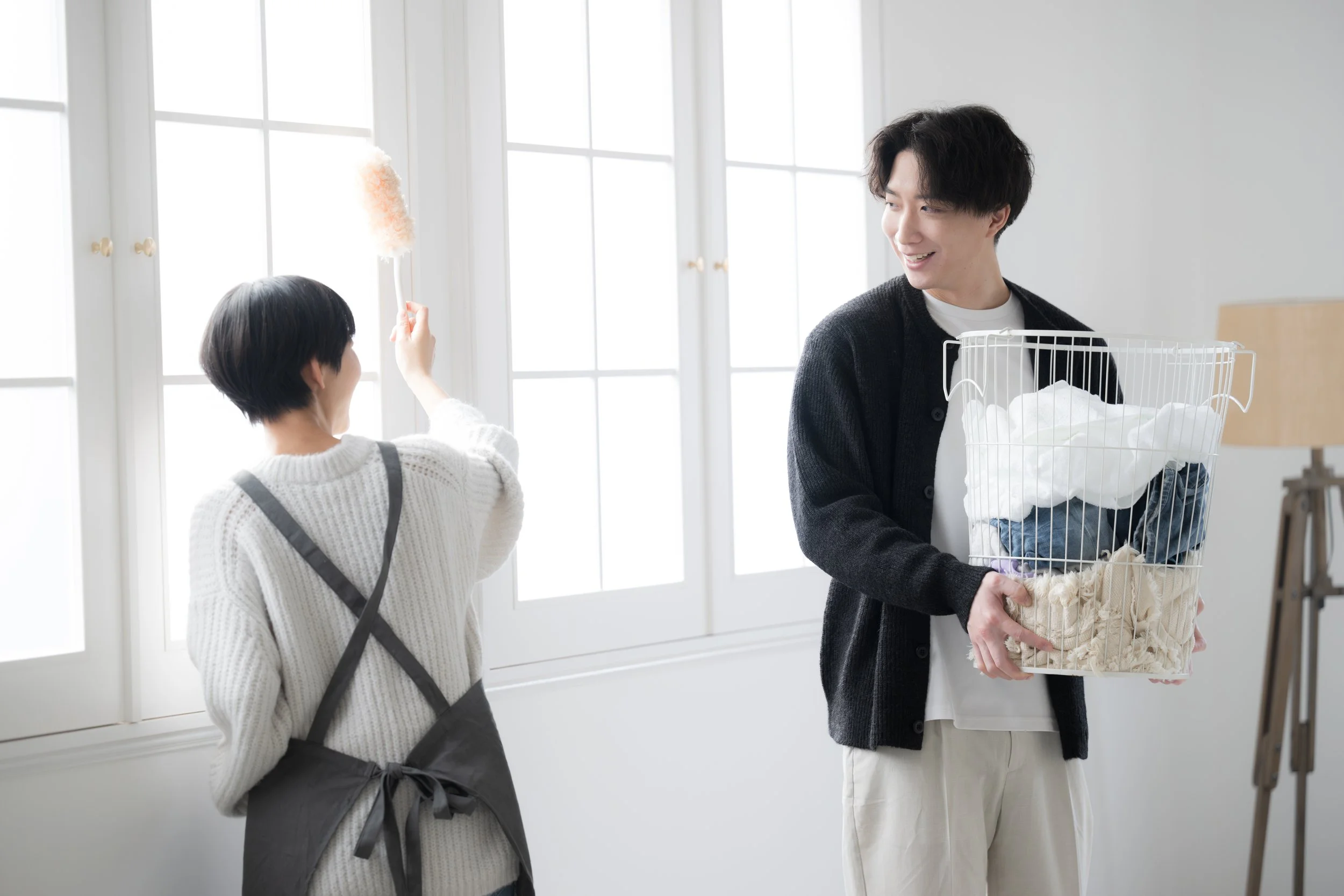THE IDENTIFIER
PEOPLE PLUS
INDUSTRIOUS DESIGN
Industrious Design
How you relate to others.
Service and Loyalty in Relationships
Your approach to relationships is centered on service and loyalty, reflecting your deep dedication to the well-being of the people around you. Supporting others isn't just about meeting their needs—it's a clear expression of your love and care. Whether you offer your time, resources, or a listening ear, you always show your appreciation and respect for your loved ones. This generosity strengthens your bonds and gives you immense satisfaction as you find joy in making sure your people feel happy and secure.
The Importance of Loyalty in Building Trust
Loyalty is another key element in how you connect with others. You're steadfast, providing a foundation of trust that deepens connections over time. This trait also shapes what you expect in return, as you highly value loyalty from others. Mutual loyalty creates a supportive environment where everyone can thrive, knowing they have a dependable network of care whenever they need it.
Values-Driven Social Interaction
Your style in social settings reflects your values, too. While you're quieter in public, preferring to listen rather than lead conversations, you're much more expressive with family and friends. In those familiar settings, you share stories and engage with ease, adapting to different social situations while staying true to your core values of connection and care.You see doing things for others as a way of loving and connecting with them.
You enjoy spending time with your families and friends.
You want to make sure that those who are closest to you are safe.
You see it as an honor to be able to sacrifice for those you are in relationships with.
You can be quiet when in public, but when with your family and friends, you can be very talkative.
Industrious Design
Meet the other Designs
Meet the other Industrious Design
-
People with the Industrious Design are practical, dependable, and detail-focused, driven by a strong desire to maintain stability, ensure functionality, and support others through consistent, reliable effort. They thrive in environments that require routine, follow-through, and task completion, and they often serve as the quiet anchors behind sustained success.
Their motivation is not about recognition but about knowing that things work because they were there to make sure of it. Industrious Designs are the ones who hold the line, keep things on track, and ensure that every system, task, or team has what it needs to operate smoothly.
-
Perception: Dependable Doers with Shared Values
Industrious individuals often see each other as trusted allies—people who understand the value of consistency, reliability, and showing up when it matters most. They immediately recognize and respect each other’s strong work ethic, attention to detail, and commitment to doing the job right.
When two Industrious Designs work together, there is usually a natural rhythm and a silent understanding of what needs to be done, how it needs to be done, and the pride that comes from doing it well.
Critique: Over-Focused or Task-Oriented to a Fault
However, Industrious Designs may also notice in each other a tendency to become too rigid, overly focused on execution, or disconnected from the bigger picture. They may see one another pushing forward without pause, sometimes neglecting interpersonal connection, emotional needs, or opportunities to innovate or adapt.
They might find that when both parties are in task mode, they can unintentionally overlook the human or relational side of teamwork, or become so intent on completing responsibilities that they forget to reflect, communicate, or recharge.
Appreciation: Mutual Backbone and Quiet Strength
Despite occasional blind spots, Industrious Designs deeply appreciate one another’s steady presence and consistent performance. There is often a shared sense of relief and mutual trust, knowing they are working alongside someone who won’t drop the ball, won’t cut corners, and won’t walk away when things get hard.
They admire each other’s unspoken strength, and in the quiet of shared labor, they form bonds of deep, practical respect. Their partnership creates continuity, safety, and sustainability, laying the groundwork for others to thrive.
-
When two Industrious Designs come together, the result is a team that is solid, responsible, and focused on getting things done right. They don’t need the spotlight—they find fulfillment in contributing behind the scenes, solving problems, and keeping everything working.
Their challenge is to stay open to flexibility, people-centered thinking, and to remember that sometimes the best support isn’t just what gets done—but how it feels to do it together.
Together, they remind us that the world doesn’t run on flash—it runs on faithfulness, and that quiet consistency builds the strongest foundations of all.
Intuitive Design
-
People with the Intuitive Design are observant, introspective, and highly perceptive, driven by a deep need to understand what lies beneath the surface of people, systems, and situations. Their focus is on truth, clarity, and uncovering meaning, especially in areas that are overlooked or misunderstood.
They tend to ask deeper questions, seek out root causes, and illuminate patterns and motives that shape behavior and outcomes. Their motivation is not just to see clearly, but to facilitate lasting change through awareness and insight. Intuitive individuals are often quiet catalysts for transformation, helping others understand what’s real, what matters, and why.
-
Perception: Capable Doers with Impressive Focus
Intuitive Designs often see Industrious individuals as hard-working, efficient, and deeply committed to ensuring things get done. They respect their attention to detail, practical mindset, and ability to bring consistency and momentum to projects that require follow-through.
To the Intuitive, Industrious Designs represent the kind of steadfast presence that provides security—they make sure the gears turn, the tasks are handled, and nothing essential is left undone.
Critique: Focused on Output, Detached from Insight
However, Intuitive individuals may sometimes feel that Industrious Designs are too goal-oriented or task-driven, often focused on “what needs to be done” without stepping back to consider why or how it fits into the bigger picture. They may perceive them as missing the deeper motives or emotional undercurrents that influence outcomes.
Intuitives might wish Industrious individuals would pause more often, reflect more deeply, and consider the relational, ethical, or systemic implications behind the actions they carry out.
Appreciation: Precision with Purpose
Despite these critiques, Intuitive Designs greatly appreciate the Industrious Design’s consistency and clarity of execution. They admire how Industrious individuals can translate insight into action, offering tangible outcomes that others can analyze, study, and build upon.
The relationship feels productive and satisfying when the Industrious partner helps manifest what the Intuitive has discerned, making inner truth visible through reliable, grounded activity.
-
Perception: Thoughtful Analysts and Strategic Clarifiers
Industrious Designs often view Intuitive individuals as insightful, analytical, and emotionally intelligent, especially when it comes to understanding the nuances of people, motivations, and situations. They recognize that Intuitives have a gift for seeing what others miss—the patterns behind the process, the "why" behind the work.
To the Industrious mindset, Intuitives often serve as wise advisors, helping them slow down just enough to see the significance behind the steps they’re taking.
Critique: Too Reflective or Slow to Act
Yet Industrious Designs may sometimes perceive Intuitives as overly contemplative, hesitant, or too focused on what’s beneath the surface, especially when quick, practical action is needed. They might grow frustrated if Intuitives seem to delay progress or question direction in the middle of execution.
They may wish Intuitives would trust the process more, focus less on internal factors, and embrace the value of timely, concrete accomplishment, even if all the emotional or philosophical layers aren’t fully resolved.
Appreciation: Clarifiers of Purpose and Perspective
Still, Industrious individuals deeply value how Intuitive Designs bring meaning and insight to their efforts. They appreciate the Intuitive’s ability to name unseen dynamics, point out patterns, and help them understand the broader impact of their work.
Together, they make a powerful team: one ensures things get done, the other ensures that what gets done is right, purposeful, and transformative.
-
The relationship between Intuitive and Industrious Designs is a blend of insight and action, awareness and accountability. One sees beneath the surface; the other brings those insights into motion. One asks “why”; the other asks “how soon?”
Together, they remind us that truth needs structure to take root, and that consistent action becomes meaningful when it’s grounded in insight. In this pairing, awareness becomes visible, and effort becomes enlightened.
Economical Design
-
People with the Economical Design are meticulous, conservative, and highly resource-conscious, motivated by a deep desire to preserve, manage, and distribute resources wisely. They are often the ones who plan ahead, think strategically, and ensure that nothing is wasted—whether it’s time, money, energy, or effort.
Economical individuals bring measured thinking, caution, and foresight to every decision. They thrive when they can contribute to stability, sustainability, and longevity, particularly in systems where clear planning and practical decision-making are needed to ensure present and future well-being.
-
Perception: Efficient Executors and Practical Allies
Economical Designs often view Industrious individuals as task-oriented, productive, and extremely effective at getting things done. They admire their hands-on practicality, their ability to organize work, complete tasks, and sustain daily operations without drama or deviation.
To an Economical mindset, Industrious Designs are key contributors to resource efficiency, ensuring that plans and provisions are implemented in a reliable and orderly way.
Critique: Too Focused on Output, Not Always on Sustainability
That said, Economical Designs may also feel that Industrious individuals are so focused on productivity and present results that they sometimes overlook long-term planning, future impact, or the careful pacing of resource use. Industrious Designs may, in the Economical’s view, become so immersed in the doing that they neglect to assess the ripple effect of their work—especially when it comes to financial, environmental, or systemic sustainability.
They may wish Industrious partners would slow down, think longer-term, and consider whether the current approach is the best use of resources in the bigger picture.
Appreciation: Reliable Stewards of Daily Efficiency
Despite occasional concerns, Economical Designs greatly value the Industrious Design’s unwavering reliability and commitment to function. They appreciate how Industrious individuals help maximize productivity with the resources already available, ensuring that no opportunity is wasted.
Economicals see Industrious partners as the ones who keep the wheels turning—executing plans with focus and care, and turning economic strategies into practical, visible progress.
-
Perception: Thoughtful Planners and Strategic Resource Managers
Industrious Designs often see Economical individuals as wise, strategic, and quietly powerful decision-makers. They admire their ability to see the long game, create structure around resource management, and make measured choicesthat lead to sustainable success.
To the Industrious Design, Economicals provide an important anchor—a voice that reminds them to pause, evaluate, and think about tomorrow, not just today.
Critique: Too Cautious or Slow to Act
However, Industrious individuals may sometimes feel that Economical Designs are too hesitant, overly focused on cost, or resistant to moving forward without perfect conditions. They may find themselves growing impatient when a task that seems “ready to go” is delayed by further calculations, analysis, or planning.
They might wish Economicals would trust in practical execution more readily, rather than holding back out of fear of waste or inefficiency.
Appreciation: Long-Term Guardians of Practical Wisdom
Still, Industrious Designs respect the Economical Design’s carefulness, discipline, and resource-conscious mindset. They value their ability to create systems of accountability, avoid unnecessary risk, and support long-term sustainability.
This collaboration creates a balanced operational environment—Industrious keeps the work moving, while Economical ensures the effort leads somewhere sustainable and worthwhile.
-
The relationship between Economical and Industrious Designs is a model of practical strength, thoughtful execution, and responsible momentum. One ensures that resources are used wisely; the other ensures that things get done efficiently. One thinks long-term; the other works day-to-day.
Together, they remind us that success is not just about getting it done—it’s about doing it in a way that lasts, and that the most reliable systems are built by those who understand both effort and economy.
Conceptual Design
-
People with the Conceptual Design are intellectually curious, innovative, and discovery-driven, motivated by a desire to explore, understand, and develop new ideas, systems, and solutions. They thrive in environments that encourage deep thinking, experimentation, and theoretical exploration, often generating the frameworks or principles that others use to navigate the world more effectively.
Their energy comes from asking “how” and “why” and from uncovering patterns that others don’t see. They are drawn to the process of learning and expanding the boundaries of knowledge, especially when it leads to meaningful innovation.
-
Perception: Practical Executors and Focused Implementers
Conceptual individuals often view Industrious Designs as highly capable, consistent, and grounded in action. They admire their ability to turn theoretical models into real-world systems, to break complex plans into manageable steps, and to execute with diligence and accuracy.
To the Conceptual, Industrious Designs are essential for making ideas tangible, offering the structure and commitment needed to turn knowledge into application and potential into results.
Critique: Too Outcome-Focused or Resistant to Exploration
However, Conceptuals may feel that Industrious individuals are too focused on the immediate or the known, sometimes showing impatience toward theoretical exploration, experimentation, or nuance. While Conceptuals enjoy the process of discovery—even when it doesn’t yield quick answers—they may find Industrious partners pressing for clear direction, measurable outcomes, or “just tell me what to do.”
This can feel limiting to Conceptuals, who may wish Industrious Designs would be more open to ambiguity, long-term innovation, and ideas that haven’t yet found their final form.
Appreciation: Builders of Tangible Knowledge
Still, Conceptual Designs deeply appreciate the Industrious Design’s ability to make ideas real. They recognize that even the best theories or innovations are meaningless without someone willing to organize, apply, and refine them through consistent effort.
When working well together, this pairing creates powerful results: one dreams, the other does; one designs, the other delivers. The Industrious Design becomes the hands and framework that carry the Conceptual’s mind into reality.
-
Perception: Insightful Thinkers and Idea Generators
Industrious Designs often see Conceptual individuals as innovative thinkers, forward-focused problem solvers, and masters of big-picture thinking. They admire their ability to develop new frameworks, ask deep questions, and think critically about complex issues.
For the Industrious person, the Conceptual provides a kind of mental fuel—keeping the work meaningful and relevant, rather than just repetitive or mechanical.
Critique: Too Theoretical or Hard to Ground
Yet, Industrious Designs may also find Conceptuals too abstract, unstructured, or slow to land an idea. When practical results are needed, Industrious types may grow frustrated by what feels like excessive deliberation, revision, or wandering thought.
They may wish Conceptuals would be more willing to commit to a clear plan, stay focused, and adapt their ideas to fit practical timelines and tools, rather than insisting on perfection or pursuing abstract possibilities indefinitely.
Appreciation: Strategic Visionaries with Depth
Despite these challenges, Industrious Designs deeply respect the Conceptual’s mental depth, problem-solving abilities, and strategic perspective. They appreciate that Conceptuals see farther, and help them connect their daily work to a larger purpose or system.
This partnership creates a balanced dynamic: Conceptuals provide insight and vision, while Industrious Designs bring structure, action, and completion. Together, they build well-thought-out systems that don’t just function—they evolve.
-
The relationship between Conceptual and Industrious Designs is one of intellectual insight paired with practical execution. One asks the big questions; the other ensures that the answers actually work. One generates knowledge; the other builds systems that carry it out.
Together, they remind us that great ideas require great builders, and that lasting innovation is the product of both vision and discipline. In this partnership, curiosity finds a foundation—and that foundation becomes the launchpad for real-world impact.
Enterprising Design
-
People with the Enterprising Design are goal-focused, strategic, and highly driven, motivated by the challenge of setting objectives, overcoming obstacles, and moving forward with measurable success. They thrive in environments that reward momentum, results, and continuous improvement, and they often bring leadership energy into any endeavor.
Enterprising individuals are quick to assess potential, formulate a plan, and rally others around action. Their energy is geared toward progress, innovation, and performance, and they’re often the ones pushing boundaries and raising the bar—both for themselves and those around them.
-
Perception: Like-Minded Achievers and Reliable Executors
Enterprising Designs often see Industrious individuals as kindred spirits—practical, hardworking, and deeply committed to accomplishing meaningful work. They admire the Industrious Design’s ability to stay on task, maintain systems, and reliably deliver results without needing external pressure.
To Enterprisings, Industrious Designs bring consistency to their ambition. They see them as the foundational force that ensures projects don't just get started—they get finished. There's mutual respect for each other’s dedication to getting things done and high standards of execution.
Critique: Too Rigid or Resistant to Change
However, Enterprising Designs may sometimes perceive Industrious individuals as too structured, overly procedural, or reluctant to pivot. In fast-paced or evolving environments, Enterprisings may feel that Industrious Designs slow momentum by insisting on routine or by becoming overly cautious with adjustments.
They may wish Industrious partners would be more willing to embrace spontaneity, adapt quickly, or experiment with less-proven paths, especially when progress is urgent or innovation is required.
Appreciation: Dependable Allies with Executional Strength
Still, Enterprising Designs greatly value the Industrious Design’s loyalty, task-oriented mindset, and focus on reliability. They trust that when something needs to be done, an Industrious partner will not only follow through—but often do it better, cleaner, and more thoroughly than expected.
This collaboration allows Enterprisings to move quickly while trusting that the structure is stable, the systems are sound, and the people behind them are fully invested in shared goals.
-
Perception: Visionary Leaders and Results-Focused Strategists
Industrious Designs often view Enterprising individuals as motivated, focused, and strategically capable. They appreciate their ability to lead with vision, make decisions confidently, and bring energy and momentum to team efforts.
To the Industrious, Enterprising Designs often feel like the tip of the spear—the ones who define direction and keep everyone moving forward with purpose.
Critique: Too Fast-Paced or Overshadowing of Process
Yet, Industrious Designs may sometimes find Enterprisings to be too quick to act or too focused on efficiency at the cost of process. They may feel that Enterprising individuals gloss over details, disregard protocol, or expect results without sufficient structure.
This can lead to stress or misalignment, especially if the Industrious feels rushed, overlooked, or expected to "just keep up" without adequate preparation.
Appreciation: Motivators and High-Impact Partners
Still, Industrious Designs genuinely admire the Enterprising’s confidence and clarity. They value their role in creating forward movement, shaping strategic priorities, and ensuring that the collective effort is not wasted. Working with Enterprising Designs helps the Industrious grow more focused on outcomes and more comfortable stepping into visible leadership.
Together, they form a powerful engine: one leads with drive, the other supports with discipline—and both are committed to excellence.
-
The relationship between Enterprising and Industrious Designs is a high-performance pairing built on mutual trust, shared ambition, and a relentless work ethic. One provides the spark of progress; the other ensures the foundation can hold it. One accelerates, the other anchors.
Together, they remind us that true advancement isn’t just about bold ideas or fast action—it’s about what gets done, how well it’s done, and how consistently it can be repeated. In this partnership, drive is grounded, and discipline is energized.
Synergistic Design
-
People with the Synergistic Design are visionary system-builders and collaborative coordinators, motivated by the desire to create order, harmony, and alignment among people, processes, and goals. They are naturally skilled at organizing efforts across teams or projects, and thrive in environments where they can bring clarity to complexity and ensure that every part contributes to a unified whole.
Their drive is rooted in the belief that structure creates freedom, and that when everything works together well, people flourish. They are often found leading initiatives, building frameworks, or developing strategies that elevate both function and connection.
-
Perception: Grounded Executors with Discipline and Focus
Synergistic individuals tend to see Industrious Designs as highly capable, reliable, and methodically disciplined. They admire their consistency in managing tasks, their attention to detail, and their ability to execute with precision.
To the Synergistic mindset, Industrious partners are essential for carrying out complex plans, maintaining operational structure, and ensuring that the vision doesn’t get lost in the chaos of execution. They are viewed as dependable builders of the everyday systems that keep everything on track.
Critique: Too Task-Centered or Detached from the System
However, Synergistics may sometimes feel that Industrious Designs are too focused on the task at hand, without always considering how it fits into the broader picture. They may perceive Industrious individuals as missing opportunities for alignment, collaboration, or optimization in pursuit of simply “getting it done.”
They may wish Industrious partners would step back more often to assess the system, the synergy, and the long-term value of their efforts—not just whether the box has been checked.
Appreciation: Foundational Contributors to Functional Order
Still, Synergistic Designs deeply appreciate the strength and support that Industrious Designs bring to any collaborative effort. They value their ability to create order within systems, follow through on details, and sustain progress through reliable execution.
This partnership allows Synergistics to lead with vision and coordination, knowing that Industrious teammates are fully invested in bringing structure, stability, and steady forward motion to the process.
-
Perception: Big-Picture Thinkers and Collaborative Leaders
Industrious Designs often see Synergistic individuals as strategic, organized, and socially adept system designers. They admire their ability to orchestrate projects, harmonize efforts, and maintain an ongoing awareness of how everything fits together.
To the Industrious Design, Synergistics often provide the map and the method, helping to make sense of multiple moving parts and ensuring that goals are not only clear, but connected across people and processes.
Critique: Too Conceptual or Overly Process-Focused
Yet Industrious individuals may sometimes feel that Synergistic Designs are too concerned with the system or the group dynamic, occasionally at the expense of just doing the work. They may see them as being caught in planning cycles, collaboration protocols, or process perfection, instead of making decisions and moving forward.
They might wish for more immediacy, simplicity, and trust in direct action, particularly when a task could be completed without overcomplicating the structure around it.
Appreciation: Strategic Direction and Relational Awareness
Despite these moments of tension, Industrious Designs highly value the Synergistic’s ability to lead with order, vision, and relational intelligence. They recognize that Synergistic partners create spaces where people feel aligned and empowered, and where work is not only done—but done with greater purpose and cohesion.
Together, they form a balanced duo: one keeps the vision connected, the other keeps the system running. One designs the workflow; the other ensures it gets followed through.
-
The relationship between Synergistic and Industrious Designs is a dynamic balance of strategy and service, system and support. One sees the whole; the other sees the pieces. One designs the path; the other paves it.
Together, they remind us that a functioning system is only as strong as its foundation, and that vision only becomes reality when it is backed by consistency, discipline, and collaborative follow-through.
Experiential Design
-
People with the Experiential Design are creative, emotionally attuned, and freedom-loving, driven by the pursuit of joy, beauty, and personal fulfillment. They thrive in environments where they can express themselves authentically, connect meaningfully with others, and create memorable, life-giving experiences.
Their motivation comes from the belief that happiness is essential, not optional. They are drawn to lifestyles and activities that foster emotional well-being, play, and peace, and often bring a lightness and warmth into the spaces they inhabit.
-
Perception: Productive and Purpose-Driven, But Serious
Experiential individuals often see Industrious Designs as hardworking, reliable, and driven by duty. They admire their commitment to goals, their ability to handle responsibilities, and their consistent focus on getting things done well.
However, they may also perceive Industrious individuals as overly serious, task-oriented, or even emotionally distantat times. While the Experiential lives in the moment and seeks meaningful experience, they may feel that Industrious types are too immersed in function to notice beauty or enjoy the process.
Critique: Too Rigid, Not Enough Play
Experiential Designs may critique Industrious individuals for being overly rigid or inflexible, too concerned with what “needs to be done,” and not attuned enough to emotional needs or opportunities for joy. They might feel that Industrious Designs miss the richness of the moment, sacrificing connection or celebration for the sake of constant output.
They may wish their Industrious counterparts would let go of control, embrace a little more spontaneity, and see that joy is not a reward—it’s part of the process.
Appreciation: Partners in Meaningful Progress
Despite these differences, Experiential Designs deeply appreciate the Industrious Design’s ability to bring structure, follow-through, and purpose to their more free-flowing creativity. They recognize that real fulfillment isn’t just about experiences—it’s also about making things happen and seeing things through.
They admire the Industrious Design’s stability and work ethic, and know that with their help, dreams can become real, and joy can take on tangible, lasting form.
-
Perception: Vibrant, Uplifting, and Emotionally Creative
Industrious Designs often see Experiential individuals as energetic, expressive, and emotionally rich. They admire their ability to bring lightness to heavy work, connect with others emotionally, and create a sense of enjoyment and celebration even in the middle of responsibility.
To the Industrious Design, Experientials bring a kind of magic—reminding them of the why behind the what—and helping transform everyday tasks into something more personal and meaningful.
Critique: Too Unstructured or Disconnected from Responsibility
However, Industrious individuals may also feel that Experientials are too focused on enjoyment or emotional expression, and not grounded enough in practical follow-through. They may grow frustrated by last-minute changes, emotional swings, or a perceived lack of reliability, especially in situations where discipline and deadlines matter.
They might wish that Experientials would stick to a plan, finish what they start, and show more awareness of how work sustains the very freedom they cherish.
Appreciation: Reminders of Meaning and Motivation
Despite their differences, Industrious Designs genuinely value the presence of Experiential individuals. They bring warmth, encouragement, and creative energy that can lift the Industrious out of routine and back into a sense of joy and purpose.
Experientials help the Industrious Design feel life—not just maintain it, and often serve as a gentle nudge toward rest, beauty, and meaningful connection—elements that strengthen resilience and prevent burnout.
-
The relationship between Experiential and Industrious Designs is a balance between joy and duty, freedom and order, presence and progress. One brings life into the task; the other brings structure into the dream. One thrives on feeling; the other on function.
Together, they remind us that satisfaction isn’t found only in accomplishment or emotion—but in the harmony between the two. When joy is grounded in purpose, and work is infused with delight, both designs thrive—and so does everyone around them.
Industrious Design
How you see yourself.
You see yourself as a motivated, goal-oriented, and productive individual, always striving to achieve and advance both personally and professionally. Your self-image is deeply rooted in your ability to set clear objectives and work tirelessly to accomplish them. Here are some key aspects of how you typically perceive yourself:
-
You see yourself as highly motivated, with a clear sense of purpose and the determination to achieve your goals. You take pride in your ambition and the energy you bring to your pursuits, always pushing yourself to reach new heights.
-
You view yourself as someone who gets things done efficiently. You believe in your ability to handle tasks and challenges with competence and speed, priding yourself on being an effective problem-solver who can navigate obstacles with ease.
-
You consider yourself to be pragmatic and focused on tangible outcomes. You value practical solutions and measurable results, often favoring action over lengthy contemplation. Your approach is to focus on what works and brings real progress.
-
You have confidence in your skills and abilities, believing that you are capable of handling a wide range of tasks and responsibilities. You trust in your competence and often take on challenges knowing that you can succeed.
-
You see yourself as well-organized and disciplined, with a strong ability to manage your time and resources effectively. This organizational strength helps you stay on track and reach your objectives without getting sidetracked.
-
You identify strongly with being resilient and persistent. Setbacks don’t easily discourage you; instead, you view them as opportunities for growth and improvement. You pride yourself on your ability to persevere and keep pushing forward, no matter the obstacles.
Your self-perception is heavily influenced by your progress drive, which emphasizes achieving goals, making consistent progress, and continually improving. You take great pride in your work ethic and your ability to persevere in the face of challenges, seeing yourself as a reliable and hardworking contributor in any endeavor you undertake.
How you see others.
Individuals driven by the Support motivational design tend to see others through a lens of care, reliability, and the desire to ensure that those around them are well-supported and capable of succeeding. Here's how they typically perceive others:
Perception of Others:
-
They often view others as inherently valuable and deserving of care and support. They believe that everyone has worth and that their role is to help others realize their potential by providing the necessary strength and assistance.
-
Those with a Support drive see others as needing stability and reliability in their lives. They often perceive that people require a dependable foundation to thrive, and they feel compelled to be that steady presence.
-
They recognize that success is often a collective effort and that individuals thrive when they have the backing of others. They see themselves as part of a larger network where their support helps others achieve their goals.
-
People driven by Support tend to believe that others appreciate and benefit from the help they receive. They see themselves as being able to provide practical assistance that makes a real difference in others' lives.
Challenges in Perception:
While they generally have a positive and nurturing view of others, those driven by Support may sometimes overestimate others' need for help or may feel frustrated if their support is not acknowledged or appreciated. They might also struggle with setting boundaries, as their desire to help can sometimes lead to taking on too much responsibility for others' well-being.
In summary, those driven by Support see others as valuable individuals who benefit from stability, encouragement, and reliable assistance. They perceive themselves as playing a crucial role in helping others succeed and maintain balance in their lives.
Industrious Design
How others see you.
Others often see industrious designs as highly motivated, capable, and efficient individuals. Here are some common perceptions:
-
Industrious designs are frequently recognized for their strong work ethic and dedication. People see them as reliable and industrious, always putting in the effort to accomplish their goals.
-
They are often perceived as driven and purpose-oriented. Others notice their clear sense of direction and commitment to achieving specific objectives, which can be both inspiring and intimidating.
-
Industrious designs are viewed as productive and efficient, able to manage tasks and responsibilities with skill. People often appreciate their ability to get things done quickly and effectively.
-
Others see them as competent and capable, often trusting them to handle important tasks or lead projects. Their confidence in their abilities tends to be reassuring to those around them.
-
Industrious designs can be seen as assertive and sometimes competitive. Their strong drive to succeed can make them appear forceful or overly ambitious to some, especially in high-pressure situations.
-
They are often perceived as practical and down-to-earth, favoring pragmatic solutions and focusing on what is achievable. Others may appreciate their realistic approach to problem-solving.
-
While they are respected for their focus on getting things done, they may also be seen as overly task-oriented, potentially neglecting interpersonal relationships or the emotional aspects of a situation. This can sometimes make them seem aloof or disconnected from the people around them.
-
Industrious designs are admired for their resilience and persistence. Others often see them as tenacious and able to overcome obstacles, making them reliable in challenging situations.
Overall, others tend to view industrious designs with respect and admiration for their hard work, determination, and efficiency. However, their intense focus on goals and results can sometimes lead others to perceive them as overly serious or lacking in attention to personal and emotional aspects of interactions.
Industrious Design
How you interact with others.
For those with an Industrious motivational design rooted in Support, their approach to relationships, communication, trust, and conflict is shaped by their focus on stability, reliability, and being a dependable resource for others. Here’s how someone with an Industrious-Support design might respond:
What is your personality?
Your personality is dependable, practical, and detail-oriented. You take pride in being reliable and always being there for others when they need you. You're hardworking and enjoy contributing to the well-being of those around you, whether it’s at work or in your personal life.
How do you think people see your personality?
People likely see you as trustworthy, steady, and supportive. They may describe you as someone who is always prepared and willing to help, someone others can count on in any situation. While some may see you as reserved or too focused on routine, those who know you well appreciate your commitment and the security you provide.
-
Your communication style is clear and consistent, with a focus on practical details and how things can be done effectively. You listen attentively, especially when someone needs help or guidance. You pay close attention to what people are saying and often think about how you can assist or make things easier for them.
-
You are a good listener, particularly when it comes to understanding what others need. You prefer to listen first and then speak after you’ve considered the most helpful response.
-
You communicate when there is a need to coordinate efforts, provide support, or ensure that tasks are being done correctly. You also communicate to offer help, share important details, or clarify responsibilities. Your communication is often driven by the desire to keep things running smoothly and to make sure everyone is on the same page.
-
You connect with others by being a reliable presence in their lives. You build relationships through acts of service, helping with tasks, or simply being there when someone needs a listening ear. You value consistent, steady connections where you can play a supportive role.
-
You decide who to trust based on their reliability and consistency. You observe how people handle their responsibilities and whether they follow through on their commitments. Trust, for you, is built over time through repeated positive interactions. When you trust, you do so fully, believing in the person’s ability to be dependable.
-
A breach of trust occurs when someone is unreliable, fails to keep their promises, or abandons their responsibilities. You also find it hard to trust again if someone takes advantage of your willingness to help or disregards the effort you put into supporting them. Dishonesty or carelessness in fulfilling duties are significant breaches for you.
-
It hurts you when your efforts to help or support others go unappreciated or are taken for granted. You also feel hurt when people dismiss the importance of the work you do or when they don’t value the stability you bring to a situation. Being let down by someone you’ve trusted deeply is particularly painful.
-
When you’re hurt, you tend to withdraw and focus on your work or responsibilities. You might become quieter and less willing to offer help until you’ve had time to process your feelings. You usually cope by throwing yourself into tasks where you can see tangible results and regain a sense of control.
-
When you’re wrong, you apologize sincerely, acknowledging your mistake and offering to make it right. You believe in taking responsibility for your actions and ensuring that you don’t repeat the same mistake. Your apologies often come with a commitment to do better and to restore any lost trust.
-
A good apology, in your view, is one that is heartfelt and includes a clear acknowledgment of the mistake. It should come with an offer to fix the issue and a genuine commitment to prevent it from happening again. You appreciate apologies that show understanding of how the mistake affected you and that include a concrete plan for making amends.
Summary:
You have an Industrious Design, which means you focus on being reliable and ensuring that things run smoothly for others. You communicate to provide support and clarity, valuing trust built on consistency and dependability. Trust is breached when reliability is compromised or when your support is taken for granted. Your approach to conflict and communication is steady and practical, emphasizing responsibility and the need to maintain a stable environment. Apologies are important to you, particularly when they include a clear commitment to improvement and making things right.
Industrious Design
Friendship
For you, with an Industrious Design, friendship is a deeply meaningful and essential part of your life. You view friendship as a vital space where you can offer your natural strengths—reliability, care, and stability—to those you care about. You thrive in roles where you can be of service to others, and your friendships often reflect this desire to be a steady, dependable presence. To you, friendship is about much more than casual companionship; it’s about building lasting, supportive connections that provide a sense of security and well-being for everyone involved.
-
You naturally step into the role of the pillar of strength in your friendships. You're the friend others turn to in times of need, knowing they can rely on you for unwavering support. Whether it’s offering a listening ear, providing practical help, or simply being there when needed, you take pride in being the rock your friends can lean on. Your friends know they can count on you to show up, follow through, and provide the stability that helps anchor the relationship.
-
In your friendships, you often take on the role of caretaker, always looking out for the well-being of those around you. You go out of your way to ensure that your friends are comfortable, happy, and well-supported, whether through small acts of kindness like regular check-ins, offering to help with tasks, or providing emotional support during tough times. You take your role as a friend seriously and find fulfillment in knowing you’re making a positive difference in the lives of those you care about.
-
Reliability is a cornerstone of friendship for you. You believe that a true friend is someone who can be counted on, no matter what. You value consistency in your relationships, and you strive to be dependable in every aspect of your friendships. This means being punctual, keeping promises, and being there through thick and thin. Your friends appreciate this dependability, knowing that they have someone they can trust completely. In turn, you also value friends who demonstrate the same level of reliability and commitment.
-
You often focus on creating a safe and stable environment within your friendships. You are sensitive to the needs of others and work to ensure that your relationships are free from unnecessary drama or conflict. You prefer a calm, predictable dynamic where everyone knows their role and feels secure. You are likely to take steps to mediate tensions, resolve conflicts, and maintain harmony within your friend group. By fostering this stability, you help create a space where everyone can feel comfortable and supported.t
-
You are committed to building long-term, enduring friendships. You aren’t interested in fleeting connections; instead, you seek relationships that will stand the test of time. You invest heavily in your friendships, often taking on responsibilities that help maintain and strengthen the bond over the years. Whether it’s through regular communication, thoughtful gestures, or being a constant presence, you work to ensure that your friendships are built on a solid foundation of trust, care, and mutual support.
-
In addition to emotional support, you’re often the friend who offers practical help. You’re the one who will help someone move, fix things around the house, or lend a hand with everyday tasks. You find joy in being useful and take pride in your ability to provide tangible assistance to your friends. This practical support is an extension of your caring nature and reinforces your role as the dependable friend who is always there to lend a hand.
-
You often encourage responsibility and accountability within your friendships. You believe that a healthy friendship is one where both parties take their commitments seriously and are accountable to each other. You value friends who are responsible, reliable, and who understand the importance of following through on their promises. In return, you offer the same level of dedication and expect your friends to uphold similar standards of responsibility.
-
While you are naturally inclined to care for and support your friends, you also respect the importance of boundaries. You understand that everyone has their own needs and limits, and you are careful not to overstep or impose. You strive to find a balance between being available and giving your friends the space they need. This respect for boundaries helps to maintain a healthy, balanced friendship where both parties feel comfortable and valued.
-
Routine and stability are often important to you, and you bring this sense of order into your friendships. You appreciate regular contact and consistent patterns in your relationships, whether it’s a weekly catch-up call, a monthly dinner, or shared traditions. These routines help to strengthen the bond and provide a reliable framework for the friendship. You are also likely to encourage your friends to establish routines that support their well-being and stability.
Summary
For you, with an Industrious Design, friendship is about being a steadfast, reliable presence in the lives of those you care about. You see your role as a friend as one of providing care, stability, and unwavering support, ensuring that your friends feel secure and well taken care of. You value consistency, practicality, and long-term commitment, and you take pride in being a dependable friend who can always be counted on. Friendship, for you, is a serious commitment, and you invest your time, energy, and care into building strong, lasting relationships that bring comfort and stability to everyone involved.
Here are 10 things you tend to value in a friendship:
-
You deeply value friends who are reliable and dependable. You appreciate knowing that you can count on your friends to be there when needed, to follow through on commitments, and to offer consistent support. Reliability in friendship is crucial for you, as it reinforces the trust and stability you seek in your relationships.
-
Loyalty and commitment are central to your friendships. You value friends who are committed to maintaining the relationship through good times and bad, who stand by you and show unwavering loyalty. This commitment fosters a deep sense of security and trust, which is essential for your well-being.
-
Mutual support and care are highly important to you. You appreciate friendships where both parties are there for each other, offering emotional and practical support when needed. You value being able to provide care to your friends and equally appreciate receiving it in return, creating a balanced and nurturing relationship.
-
You value consistency and stability in your friendships. You prefer relationships that are predictable and steady, where you know what to expect and can rely on a consistent level of interaction and support. This stability helps you feel secure and strengthens the bond you share with your friends.
-
Practical help and problem-solving are valued aspects of friendship for you. You appreciate friends who are willing to lend a hand with tasks, offer solutions to challenges, and provide practical support in everyday life. You also enjoy being able to offer this kind of help to your friends, as it reinforces your role as a dependable and caring friend.
-
You value honesty and transparency in your friendships. You appreciate friends who are straightforward and open with you, who communicate clearly and genuinely. Being honest with each other builds trust and ensures that your relationships are based on mutual understanding and respect.
-
Emotional support and compassion are crucial to you in a friendship. You value friends who are empathetic and understanding, who can offer comfort and kindness when you’re going through tough times. You also enjoy providing this support to your friends, helping to create a relationship where both of you feel cared for and understood.
-
You value friendships where there is a sense of shared responsibility and cooperation. Whether it’s planning events, helping each other with tasks, or simply being there when needed, you appreciate friends who actively contribute to maintaining the friendship and work together to make things easier for both of you.
-
Respect for boundaries is important to you in your friendships. You appreciate friends who understand and respect your personal limits and who allow you the space you need. You value a friendship where both of you can be yourselves without feeling pressured or overwhelmed, maintaining a healthy balance of closeness and independence.
-
You value dependable communication in your friendships. You appreciate friends who stay in touch regularly and who communicate openly and reliably. Whether it’s a quick check-in or a deep conversation, consistent communication helps you feel connected and ensures that your friendship remains strong and vibrant.
These values highlight your desire for friendships that are honest, compassionate, and cooperative, with mutual respect and reliable communication. You seek relationships where both of you can support each other, respect boundaries, and work together to maintain a strong, healthy bond.
Industrious Design
Romantic relationship
For those with an Industrious Design rooted in Support, romance is seen as a vital partnership where stability, care, and dependability take center stage. Individuals with this design approach romance with a strong sense of responsibility, seeing it as their role to create a secure and nurturing environment for their partner. They believe that a successful relationship is built on the foundation of mutual support and the reassurance that each partner can rely on the other, no matter what challenges arise.
-
You view stability as one of the cornerstones of a healthy romantic relationship. You are naturally inclined to provide your partner with a sense of security, both emotionally and practically. Whether it's through financial planning, organizing daily routines, or simply being a steady presence, you prioritize creating an environment where your partner feels safe and secure. This stability isn’t just about financial or material security; it extends to emotional security, where your partner knows that you are fully committed and will stand by them through thick and thin.
-
Nurturing is a key aspect of how you express your love. You are attentive to your partner’s needs, often going out of your way to ensure that they are comfortable, happy, and well-cared-for. This could manifest in simple daily gestures, like preparing their favorite meal or ensuring they have what they need for a productive day. You find joy in the act of caregiving and take pride in being a dependable source of support. Your nurturing nature is often subtle but deeply impactful, providing your partner with a sense of being cherished and valued.
-
Reliability is another critical component of romance for you. You see yourself as the pillar of your relationship, someone your partner can always count on. Whether it’s being there during tough times or consistently showing up in small, everyday ways, you believe that love is demonstrated through actions that build trust over time. Your consistency helps to create a predictable and reassuring rhythm in the relationship, where your partner knows they can depend on you to follow through on commitments and be there when needed.
-
You often find comfort and meaning in the routines and rituals you establish with your partner. These routines might include daily check-ins, shared chores, or weekly date nights—anything that reinforces your connection and keeps the relationship running smoothly. You see these routines not as mundane but as essential practices that strengthen the relationship and ensure that both partners are working together towards a common goal. Shared responsibilities are particularly important to you, as you believe that a well-functioning partnership is one where both individuals contribute to the upkeep and success of the relationship.
-
Romance, for you, is not just about the present; it's also about building a future together. You approach your relationships with a long-term perspective, always thinking ahead to ensure that your partnership remains strong and resilient. This might involve careful financial planning, setting mutual goals, or discussing future aspirations to ensure they are aligned. Your commitment to the relationship's longevity is unwavering, and you take a proactive approach to resolving issues before they become significant problems.
-
When challenges arise, you are likely to respond with calmness and practicality. You don’t shy away from difficult conversations or situations but instead tackle them head-on, focusing on finding solutions that will restore balance and harmony to the relationship. Your natural inclination is to protect the relationship by addressing issues promptly and effectively, ensuring that your partner feels supported throughout the process.
-
For you, mutual dependability is at the heart of a thriving romance. You value relationships where both partners can rely on each other equally, creating a dynamic where each person knows they are not alone in facing life’s challenges. You take great satisfaction in knowing that your partner depends on you, and you equally appreciate being able to lean on your partner when needed. This mutual reliance fosters a deep sense of trust and solidarity, which you see as essential to a lasting and fulfilling romance.
-
While you find comfort in routines and predictability, you also understand the importance of balancing tradition with flexibility in your relationship. You appreciate the value of established practices and shared rituals, but you also recognize when it's necessary to adapt and evolve. Whether it’s making adjustments in your routines to accommodate new circumstances or being open to trying new approaches, you strive to maintain a balance that honors both stability and growth. This flexibility ensures that your relationship remains resilient and capable of thriving amidst change.
-
For you, love is often expressed through practical support and acts of service. You believe that showing up for your partner in tangible ways—whether it’s taking care of daily responsibilities, helping them achieve their goals, or providing a listening ear when they need to talk—is a powerful way to demonstrate your affection. These actions speak volumes about your commitment and care, creating a strong foundation of trust and appreciation in your relationship. By consistently offering practical support, you help your partner feel valued and understood, reinforcing the bond you share.
Summary
In summary, romance for you is about building a partnership that is grounded in stability, care, and reliability. You view your role in the relationship as a provider of comfort and security, ensuring that your partner always feels supported and valued. Through consistent actions, nurturing care, and a commitment to shared goals, you create a relationship that is not only resilient but also deeply fulfilling for both partners. Romance, for you, is less about grand gestures and more about the everyday acts of love that strengthen the bond and ensure the long-term success of the relationship.
Here are 10 things you tend to value in a romantic relationship:
-
You highly value a partner who is reliable and dependable. Knowing that you can count on each other builds trust and security within your relationship. Consistency in actions, whether it's keeping promises or being there in times of need, is crucial to you.
-
Stability is a cornerstone of your approach to romance. You value a relationship where both partners contribute to creating a stable environment, whether that’s emotional stability, financial security, or consistent routines. A secure relationship allows you to feel safe and grounded, knowing that your future together is solid.
-
You deeply appreciate a relationship where both partners actively support and care for each other. You value acts of service and practical help, seeing these as essential expressions of love. Being able to nurture and be nurtured in return creates a balanced and fulfilling partnership for you.
-
You value a partnership where responsibilities are shared and where teamwork is emphasized. Whether it’s managing household tasks, planning for the future, or handling challenges, you appreciate a partner who is willing to work together to keep the relationship and life running smoothly.
-
A strong commitment to the future is vital for you. You value a partner who is equally invested in the long-term success of the relationship. You appreciate thoughtful planning and discussions about the future, including setting mutual goals and ensuring that both of you are aligned in your vision for the years ahead.
-
You value emotional honesty and openness in your relationship. You believe in clar, straightforward communication about feelings, needs, and expectations. Transparency helps you build trust and ensures that both you and your partner are on the same page emotionally.
-
Respect and appreciation are highly important to you. You seek a relationship where both partners recognize and appreciate each other’s contributions, whether big or small. Mutual respect is seen as a foundation for a healthy, enduring partnership.
-
You appreciate the comfort and predictability that comes from established routines. Consistency in daily life helps create a stable and secure environment, allowing you to focus on nurturing the relationship without the stress of unexpected disruptions.
-
Practicality is important to you, both in how you manage the relationship and in everyday life. You value a partner who is resourceful and capable of handling life's practicalities efficiently. This includes financial prudence, problem-solving skills, and the ability to manage responsibilities effectively.
-
You place a high value on having shared values and common goals. Whether it’s similar views on family, finances, or future aspirations, alignment in these areas is crucial. You want to build a life with someone who shares your vision and is committed to working together toward those goals.
These values underscore your desire for a relationship that is built on mutual respect, shared responsibility, and a commitment to a stable, secure, and harmonious life together. You seek a partner who is practical, reliable, and aligned with your vision for the future.
Family Relationships (Industrious Design)
The Steady Presence and Quiet Provider
For you, with an Industrious Design, family isn’t just about love—it’s about loyalty, responsibility, and showing up when it matters most. You express your devotion not through dramatic gestures or elaborate declarations, but through the daily work of care—the meals prepared, the chores handled, the promises kept.
You are the one who keeps the lights on—literally and figuratively—making sure that life runs as it should, even when no one notices the quiet systems you uphold. You don’t seek recognition, because what you offer isn’t performative—it’s personal. For you, love is service, and service is sacred.
-
Description text goes here
-
Description text goes here
-
Description text goes here
-
Description text goes here
-
Description text goes here
-
Description text goes here
A Heart of Service
You find meaning in the small, often unseen acts that make life livable. Whether it’s fixing what’s broken, anticipating a need before it’s spoken, or making sure the house is warm and meals are ready, your love is expressed through reliability. You don’t need to be asked—you simply do what needs to be done, because that’s what love looks like to you.
Loyalty Through Action
Your family can count on you—every time. You may not always voice your emotions, but your actions are a steady chorus of "I’ve got you." You’re rarely the loudest voice in the room, but you are always the one who shows up, quietly bringing order, calm, and follow-through in a world that can often be chaotic or unreliable.
Holding the Household Together
Others may focus on grand celebrations or big moments—but you hold it all in place. You are the invisible thread that ties the pieces of family life together: the morning routines, the grocery runs, the little repairs, the family calendar. These aren’t chores to you—they’re expressions of devotion. You don’t just manage your home—you anchor it.
Reliability as a Form of Love
You don’t chase spotlight or status. What you long for is to be needed, useful, and trusted. You express your love through tasks, through follow-through, and through the stability you bring. To you, being there—especially when it’s hard—is the highest form of love.
Building Peace Through Practical Rhythm
You create calm not just by speaking peace—but by building it. Through routines, rhythms, and small acts of consistency, you shape a family life that runs smoothly. The dishwasher is emptied before it’s needed. The bills are paid without drama. The day starts and ends with dependable rituals. These things may not be flashy, but they matter. You believe that when life works, people can rest—and your labor becomes their peace.
Being the Emotional Baseline
Even if you're not the most outwardly expressive, your presence offers deep emotional steadiness. You may not always be the first to say “I love you,” but you’re the one who holds others up when life gets heavy. You sense when something’s off, even if no one speaks it aloud, and your quiet, grounded presence becomes the emotional anchor others rely on. In times of uncertainty, you’re often the one who keeps everyone calm—not through words, but through unwavering presence.
Quiet Sacrifice, Constant Contribution
There are things you do for your family that no one sees—but you do them anyway. You take the late-night shift. You cancel your plans so someone else doesn’t have to. You carry the invisible burdens, not for applause, but because that’s who you are. Your contributions are constant, and while others may not always notice them, they’d feel the absence if you stopped. For you, love means doing the hard things—not because it’s expected, but because it’s right.
Devotion Without Drama
You don’t need a stage to show your love. You aren’t driven by recognition or praise. You thrive in the background, quietly protecting, preparing, and providing, knowing that your consistency says more than any speech ever could. Your kind of love doesn’t demand to be seen—it simply stays. And over time, your steady devotion builds the kind of trust that anchors a family in the midst of change.
Long-Term Commitment, Season After Season
You don’t just love in the good times—you love in the grind. You are the one who stays when things are messy, who keeps showing up when others are tired, who still makes the coffee even when no one says thank you. You believe that true love isn’t proven in grand declarations—it’s proven over years, across hard seasons, through persistence, faithfulness, and small daily acts of care. You are in it for the long haul, and your family draws strength from that enduring promise.
Leading from the Background
You don’t need to be the face of every decision, but you are often the foundation beneath them. Your leadership shows up in quiet ways—planning ahead, remembering what others forget, and keeping life running while others focus on the spotlight. You guide your family with subtle strength, preferring to influence through dependability rather than dominance. When a crisis hits, people turn to you—not just for help, but for direction. You lead not to be seen, but to keep everyone else moving forward, secure in the knowledge that someone has their back.
10 Things You Tend to Value in Family Relationships
(Industrious Design)
-
Description text goes here
-
Description text goes here
-
Description text goes here
-
Description text goes here
-
Description text goes here
-
Description text goes here
1. Consistency and Reliability
Nothing says love to you like someone who follows through. You value consistency over charisma—people who show up when they say they will, who do what they promise, and who make life predictable in the best way. You strive to be this person, and you deeply appreciate others who reflect that same steady rhythm.
2. Shared Responsibility
To you, family is a team—and everyone should pull their weight. You feel most supported when others recognize your effort and are willing to contribute in practical ways. You value partnership, not perfection, and you thrive when the work of life is carried together.
3. Practical Acts of Love
You show affection by doing—repairing, preparing, anticipating. You value families that understand acts of service are as meaningful as emotional words, and you feel most loved when your practical care is acknowledged and reciprocated.
4. Stability and Routine
You find peace in the predictable. You don’t require everything to be rigid, but you feel most grounded when the home runs on a reliable rhythm. You value structure that supports freedom—not chaos that erodes it.
5. Duty and Commitment
To you, love means showing up, even when it’s hard. You value family members who take their roles seriously—who keep going through thick and thin, who understand that real commitment is built on shared effort, not shifting emotions.
6. Quiet Presence
You don’t need constant conversation to feel close. Just being together—doing tasks side by side, sharing space, knowing someone is near—that’s connection to you. You value the intimacy of quiet companionship, the ease of unspoken trust.
7. Being Needed and Useful
There’s a special kind of joy in knowing you make a difference. You take pride in being the one others rely on, and you feel most connected when your strengths are actively supporting the people you love. Your confidence grows from usefulness, not attention.
8. Peace and Order
You can handle crisis—but you’d rather prevent it. You value a home where responsibility is shared, things are put back where they belong, and tensions are addressed before they boil over. Peace doesn’t happen by accident—it’s built, and you’re one of the builders.
9. Appreciation Through Action
While you may not seek constant praise, being noticed matters. A kind word, a helping hand, someone stepping in without being asked—these moments speak volumes to you. You value gratitude that shows up in shared effort, not just sentiment.
10. Long-Term Support
To you, love is about longevity. It’s the decades-long dedication, the phone calls made out of habit, the holidays prepared year after year. You build connection through consistency. You’re not just committed when things are easy—you’re in it for the long haul.
























